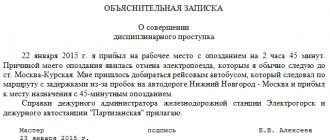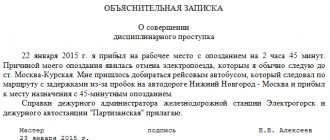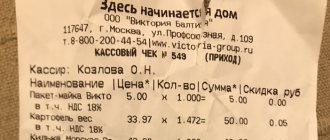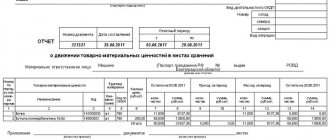Responsibilities of a serviceman to maintain military discipline
(Article: 1. Responsibilities of a serviceman to maintain military discipline)
1.
Military discipline
is strict and precise observance by all military personnel of the order and rules established by the laws of the Russian Federation, general military regulations of the Armed Forces of the Russian Federation (hereinafter referred to as general military regulations) and orders of commanders (chiefs).
3. Military discipline obliges
each military personnel:
- be faithful to the Military Oath (obligation), strictly observe the Constitution of the Russian Federation, the laws of the Russian Federation and the requirements of general military regulations;
- perform your military duty skillfully and courageously, conscientiously study military affairs, take care of state and military property;
- to unquestioningly carry out assigned tasks in any conditions, including at the risk of life, to steadfastly endure the difficulties of military service;
- be vigilant, strictly keep state secrets;
- support the rules of relationships between military personnel determined by general military regulations, strengthen military camaraderie;
- show respect to commanders (superiors) and each other, observe the rules of military greeting and military courtesy;
- behave with dignity in public places, prevent yourself and restrain others from unworthy actions, help protect the honor and dignity of citizens;
- comply with the norms of international humanitarian law in accordance with the Constitution of the Russian Federation.
8.
Each serviceman is obliged to assist the commander (chief) in restoring order and maintaining military discipline. A serviceman bears responsibility for evading assistance to the commander (superior).
Disciplinary Charter of the Armed Forces of the Russian Federation
approved by Decree of the President of the Russian Federation of November 10, 2007 N 1495
General requirements for bonuses
The employer rewards employees who conscientiously perform their job duties. In particular, by paying bonuses. He has the right to establish various bonus systems, incentive payments and allowances (Article 135 of the Labor Code of the Russian Federation).
When paying bonuses and developing documents for bonuses to employees, the following must be taken into account.
1. Local regulations, including bonuses, should not worsen the employee’s position in comparison with the current legislation (Article 8 of the Labor Code of the Russian Federation).
2. A mandatory condition for inclusion in any employment contract is the condition on remuneration (Article 57 of the Labor Code of the Russian Federation), therefore the employer must indicate the possibility of making incentive payments in the text of the employment contract. In addition, the employer cannot unilaterally cancel bonuses if they are provided for in the employment contract.
3. Labor costs include bonuses for production results, bonuses to tariff rates and salaries for professional excellence, high achievements in work and other similar indicators (Article 255 of the Tax Code of the Russian Federation, hereinafter referred to as the Tax Code of the Russian Federation). That is, the employer must establish production indicators for which bonuses are provided. These may, for example, include: for a sales manager - the number of concluded and actually executed contracts, for a lawyer - the amount of debts collected in court or through claims, VAT amounts recovered through administrative or judicial procedures, disputed amounts of additional taxes and fees, fines and etc. Such indicators can be established in plans and confirmed by reports on work performed.
4. Expenses must be economically justified and documented (Article 252 of the Tax Code of the Russian Federation). Therefore, if a company suffers losses, then the payment of large bonuses for production indicators by the tax authority may be considered unlawful.
2.1. Incentives applied to soldiers (sailors)
(Article: 2.1. Incentives applied to soldiers (sailors))
20. To soldiers and sailors
The following incentives apply:
- removal of previously applied disciplinary sanction;
- announcement of gratitude;
- a message to the homeland (at the place of residence of the serviceman’s parents or persons in whose care he was) or to the place of the serviceman’s previous work (study) about his exemplary performance of military duty and about the incentives received;
- rewarding with a certificate, valuable gift or money;
- awarding a personal photograph of a serviceman, taken with the military banner of the military unit unfurled;
- assignment of the military rank of corporal (senior sailor);
- awarding an excellent student badge;
- entering the names of distinguished soldiers (sailors) into the Book of Honor of a military unit (ship).
All types of incentives specified in this article are applied to military personnel performing military service under a contract as soldiers (sailors), with the exception of those provided for in paragraph “c”.
2.2. Disciplinary sanctions applied to soldiers (sailors)
(Article: 2.2. Disciplinary sanctions applied to soldiers (sailors))
55. To soldiers and sailors
The following types of disciplinary sanctions may be applied:
- rebuke;
- severe reprimand;
- deprivation of regular dismissal from a military unit or from a ship to shore;
- deprivation of an excellent student badge;
- warning about incomplete professional compliance;
- reduction in the military position of corporal (senior sailor);
- reduction in military rank of corporal (senior sailor);
- reduction in military rank with reduction in the military position of corporal (senior sailor);
- early dismissal from military service due to failure to fulfill the terms of the contract;
- disciplinary arrest.
All types of disciplinary sanctions specified in this article, with the exception of those provided for in paragraphs “d” and “i”, are applied to soldiers (sailors) undergoing military service under conscription, and to those undergoing military service under a contract - with the exception of those provided for in paragraph “c” .
The disciplinary sanction provided for in paragraph “k” of this article is not applied to female military personnel serving as soldiers (sailors).
In addition to the disciplinary sanctions specified in this article (except for the disciplinary sanction provided for in paragraph “i”), cadets of military educational institutions of professional education may be subject to a disciplinary sanction - expulsion from the military educational institution of professional education.
Disciplinary Charter of the Armed Forces of the Russian Federation
approved by Decree of the President of the Russian Federation of November 10, 2007 N 1495
The procedure for applying incentives and disciplinary sanctions
(Article: 3. Procedure for applying incentives and disciplinary sanctions)
26.
Military personnel, regardless of military rank and military position, are equal before the law and may be subject to disciplinary, administrative, material, civil and criminal liability, depending on the nature and severity of the offense they committed.
27.
Military personnel are subject to disciplinary liability for disciplinary offenses, that is, for unlawful, guilty actions (inaction), expressed in violation of military discipline, which, in accordance with the legislation of the Russian Federation, do not entail criminal or administrative liability.
Charter of the Internal Service of the RF Armed Forces
approved by Decree of the President of the Russian Federation of November 10, 2007 N 1495
What is the payment of bonuses based on?
Any transactions with money must be taken into account in the relevant documents, therefore, the specifics of paying bonuses must, first of all, be taken into account in at least one of the documents for internal use.
It can be:
- specially developed and duly approved Regulations on bonuses;
- the terms of the collective agreement with an appendix that details the cases of possible payment of bonuses, its size, dependence on the personal performance of each employee, or the general achievements of structural units;
- a written order (order) from the manager on bonuses for the entire workforce or individual employees;
- any other documents, properly executed.
In all cases, newly hired employees are introduced to the conditions for paying incentive accruals, and in case of changes and additions, existing employees are introduced.
Typically, the immediate managers of structural units prepare a memo addressed to the employer (the person engaged in management on his behalf) reflecting:
- the results of the work of their subordinates;
- personal data of each with a recommendation to encourage a fixed amount of bonus payment, or a percentage of accrued wages (salary or tariff), depending on the share in the successes achieved.
At the discretion of the first person of the enterprise, an order is issued to award bonuses to all or individual members of the workforce, in the amounts recommended by the immediate superior, or in adjusted amounts.
If the bonuses are systematic, on a general basis they are subject to taxation at the rate of 13% and are included in the calculation of average earnings for the given period when the accruals took place.
In order to avoid disagreements regarding the payment of bonuses for the previous period (for example, based on the results of the past year) to employees who left the enterprise by the time it was accrued, these situations should be stipulated in the document itself establishing the procedure for calculating and paying incentive supplements to wages.
It is worth noting here that when a former employee applies to the judicial authorities, if he has not been awarded a bonus based on the results of work for the period of time when he was in an employment relationship with the employer, at least in proportion to the time actually worked, as practice shows, the authorities stand up to protect the interests of the plaintiff.
In addition, with the participation of an experienced lawyer, the employer can additionally recover the amount of moral damage caused to a person who was forgotten at the time of distribution of the incentive.
3.1. Procedure for applying incentives
(Article: 3.1. Procedure for applying incentives)
34.
Commanders (chiefs) can apply incentives both to an individual serviceman and to the entire personnel of a military unit (unit).
For one distinction, a serviceman can be promoted only once.
When determining the type of incentive, the nature of the merits, diligence and distinction of the serviceman, as well as his previous attitude towards military service are taken into account.
35.
A serviceman who has a disciplinary sanction can be rewarded only by removing the previously applied sanction. The right to lift a disciplinary sanction belongs to the commander (chief) by whom the sanction was applied, as well as to his direct superiors, who have no less disciplinary power than him.
The right to lift disciplinary sanctions specified in Articles 75-79 of this Charter belongs to the direct commander (chief), who has disciplinary power no less than the commander who applied the penalty.
Only one disciplinary sanction can be removed from a serviceman at a time.
The commander (chief) has the right to lift a disciplinary sanction only after it has played its educational role and the serviceman has corrected his behavior by exemplary performance of military duty.
36.
The removal of a disciplinary sanction -
disciplinary arrest
- is carried out by the commander of a military unit, if the serviceman does not commit a new disciplinary offense: for soldiers and sailors - no earlier than three months after the execution of the decision of the judge of the garrison military court to impose disciplinary arrest.
Removal of disciplinary action - reduction in military rank (position)
- from soldiers (sailors) is carried out no earlier than six months from the date of its application.
Soldiers and sailors are restored to their previous military rank only when they are appointed to the appropriate military position.
Disciplinary action - reduction in military rank
- can be removed from a serviceman without simultaneously reinstating him to his previous position.
Removal of a disciplinary sanction - warning of incomplete official compliance
- carried out no earlier than one year from the date of its application.
37.
Encouragement -
a declaration of gratitude
- is applied both to an individual serviceman and to the entire personnel of a military unit (unit).
38.
Encouragement -
a message to the homeland (at the place of residence of the serviceman’s parents or persons in whose care he was) or to the place of the serviceman’s previous work (study) about the exemplary performance of his military duty and about the incentives received
- applies to military personnel undergoing military service upon conscription . In this case, a letter of commendation is sent to the serviceman’s homeland (at the place of residence of the serviceman’s parents or persons in whose care he was raised) or to the place of his previous work (study) with a message about his exemplary performance of military duty and about the incentives received.
39.
Encouragement -
awarding a diploma, a valuable gift or money
- is applied to all military personnel, while the diploma is awarded to both individual military personnel and the entire personnel of a military unit (unit), as a rule, at the end of the training period (academic year), upon dismissal from military service, as well as when summing up the results of a competition.
40.
Encouragement -
awarding a personal photograph of a serviceman, taken with the military banner of the military unit unfurled
- is applied to soldiers, sailors, sergeants and foremen.
The serviceman in respect of whom this incentive is applied is awarded two photographs (soldiers are photographed in full dress uniform, with weapons) with text on the back: to whom it was awarded and for what.
41.
Incentives—
the conferment of the military rank of corporal or senior sailor
—are applied to military personnel for special personal merit.
42.
Encouragement -
awarding an excellent student badge
- is announced by order of the commander of a military unit and is applied to soldiers and sailors who were excellent students during one period of training, as well as to cadets of military educational institutions of vocational education who were excellent students during the academic year.
43.
Encouragement -
entering
the names of distinguished military personnel
(ship) - is announced by order of the commander of the military unit and is applied in relation to:
- soldiers and sailors of the last period of training, undergoing military service upon conscription, who have achieved excellent performance in combat training, who have shown impeccable discipline and high consciousness during service - before dismissal from military service (cadets and students of military educational institutions of vocational education - upon completion of training) ;
- military personnel undergoing military service under a contract, for impeccable service in the Armed Forces of the Russian Federation, as well as all military personnel who particularly distinguished themselves in the performance of their military duty - during the entire period of their military service.
When an order is announced to be included in the Book of Honor of a military unit (ship), the serviceman is presented with a certificate of commendation signed by the commander of the military unit (ship). The entry in the Book of Honor of a military unit (ship) of the name of a serviceman undergoing military service upon conscription is, in addition, reported to his homeland (at the place of residence of the serviceman’s parents or persons under whose care he was) or to the place of the serviceman’s previous work (study).
45.
Incentives are announced before the formation, at meetings or conferences of military personnel, in orders or in person.
The announcement of orders to encourage or reward distinguished military personnel is usually carried out in a solemn atmosphere.
Simultaneously with the announcement of the order of encouragement, military personnel, as a rule, are presented with certificates, valuable gifts or money, personal photographs of military personnel taken with the combat flag of the military unit unfurled, merit badges, and the text of the message to their homeland is read out (at the place of residence of the serviceman’s parents or persons , under whose care he was) or at the place of the serviceman’s previous work (study) about the exemplary performance of his military duty.
46.
A serviceman is considered to have no disciplinary sanctions after they are lifted by the relevant commander (superior) or after one year has passed from the date of the last penalty, unless another disciplinary sanction was applied to him during this period.
Encouraging employees who conscientiously perform their job duties
In accordance with Art. 191 of the Civil Code of the Russian Federation “the employer encourages employees who conscientiously perform their job duties.” The above wording of the law allows us to conclude that the employer is obliged to reward a conscientious employee, and the employee, due to the conscientious fulfillment of the duties assigned to him by the employment contract, has a subjective right to a one-time (one-time) incentive. In fact, Art. 191 of the Labor Code of the Russian Federation does not oblige, but gives the employer the right to reward a conscientious employee. The assessment of the employee’s integrity in the hiring process is made by the employer. In the Labor Code of the Russian Federation of 1971, such an assessment took into account the opinion of the corresponding elected trade union body of the enterprise, institution, or organization. The employer was obliged to coordinate its opinion (assessment) on employee incentives with the elected trade union body. According to Art. 132 of the Labor Code of the Russian Federation, measures to encourage workers were applied “by the administration jointly or in agreement with the relevant elected trade union body.” This procedure to a certain extent excluded the subjectivity (personal discretion) of the employer in the process of one-time incentives for employees.
The grounds for one-time incentives can be distinguished as general and special. The general basis for encouraging an employee is a high level of compliance with his job duties and labor discipline in the organization. The general basis of incentives can be applied not only together with the special one, but also independently. Special grounds for one-time incentives are the achievement of outstanding success in work (increasing labor productivity, improving product quality, innovation, invention, rationalization activities, etc.); long-term work in one organization; training; comprehensive assessment of the work of an employee or team. Such grounds may be provided for in internal labor regulations, a collective agreement, and other local regulatory legal acts. It also sets out incentive measures and the procedure for their application. Special incentive grounds are applied if there is a general basis. An undisciplined, unscrupulous employee is not rewarded even if there is a special reason, for example, for success in rationalization, invention, etc.
There are moral and material measures of one-time (one-time) encouragement. In Art. 191 of the Labor Code of the Russian Federation establishes an open list of them: gratitude, bonus, valuable gift, certificate of honor, title of the best in the profession. Other measures to reward employees for success at work, as already noted, are enshrined in the collective agreement, internal labor regulations, as well as charters and discipline regulations. For special labor services to society and the state, employees can be nominated for state awards (Part 2 of Article 191 of the Labor Code of the Russian Federation).
In market economic conditions, moral incentive measures are usually used in combination with material incentives. Some incentive measures combine both material and moral incentives for conscientious work (valuable gift, promotion at work, promotion, etc.).
Jurisprudence
3.2. Procedure for applying disciplinary sanctions
(Article: 3.2. Procedure for applying disciplinary sanctions)
80.
A serviceman who has committed a disciplinary offense may be subject to only those disciplinary sanctions that are determined by this Charter, correspond to the military rank of the serviceman and the disciplinary authority of the commander (chief) who decides to bring the offender to disciplinary liability.
81.
The decision by the commander (superior) to apply a disciplinary sanction to a subordinate serviceman is preceded by a trial.
The proceedings are carried out in order to identify the perpetrators, identify the causes and conditions that contributed to the commission of a disciplinary offense.
The proceedings, as a rule, are conducted by the immediate commander (superior) of the serviceman who committed the disciplinary offense, or by another person appointed by one of the direct commanders (superiors). In this case, the serviceman appointed to conduct the proceedings must have a military rank and military position not lower than the military rank and military position of the serviceman who committed the disciplinary offense.
In the cases specified in Article 75 of this Charter, the proceedings are conducted by the head of the garrison, the senior naval commander, the military commandant of the garrison, the head of military communications on modes of transport, the head of military roads, the military commandant of the railway (water) section and station (port, airport) or persons appointed by them.
The proceedings, as a rule, are conducted without the preparation of written materials, except for cases where the commander (chief) has demanded that the materials of the proceedings be submitted in writing.
The materials of the proceedings regarding gross disciplinary offenses are documented only in writing.
During the proceedings it must be established:
- event of a disciplinary offense (time, place, method and other circumstances of its commission);
- the person who committed the disciplinary offense;
- the serviceman’s guilt in committing a disciplinary offense, the form of guilt and the motives for committing a disciplinary offense;
- data characterizing the personality of the serviceman who committed a disciplinary offense;
- the presence and nature of the harmful consequences of a disciplinary offense;
- circumstances excluding disciplinary liability of a serviceman;
- circumstances mitigating disciplinary liability and circumstances aggravating disciplinary liability;
- the nature and degree of participation of each of the military personnel in the commission of a disciplinary offense by several persons;
- reasons and conditions that contributed to the commission of a disciplinary offense;
- other circumstances that are important for the correct resolution of the issue of bringing a serviceman to disciplinary liability.
The commander (chief) has the right to decide to punish a serviceman who has committed a disciplinary offense using his own authority or, within up to 10 days, to submit to a superior commander (chief) the materials of the proceedings on the commission of a disciplinary offense by the serviceman for a decision to be made.
When a serviceman commits a gross disciplinary offense or upon receiving information about its commission, the immediate commander (superior) of the serviceman is obliged to immediately report this in the prescribed manner to the commander of the military unit.
The commander of a military unit decides to conduct an investigation into the commission of a gross disciplinary offense and appoints someone responsible for its conduct.
The investigation into the fact that a serviceman has committed a gross disciplinary offense ends with the drawing up of a protocol. When conducting proceedings regarding the commission of a gross disciplinary offense by a group of military personnel, a protocol is drawn up in relation to each of these military personnel.
The protocol, along with the materials of the proceedings, is provided for review to the serviceman who has committed a gross disciplinary offense, after which it is sent to the commander of the military unit for consideration. The commander (chief) or the person who conducted the proceedings sends a proposal to the commander of the military unit regarding the period of disciplinary arrest that would be appropriate to assign to the serviceman, or to apply another type of disciplinary sanction to him.
The commander of a military unit is obliged, within up to two days, to review the protocol and materials on the commission of a gross disciplinary offense and make a decision either to send them to the garrison military court, or to apply another disciplinary sanction to the serviceman as provided for in this Charter.
In cases where the circumstances of a serviceman committing a gross disciplinary offense are established by a previously conducted audit, inspection or administrative investigation or materials on an administrative offense, a hearing by the commander of the military unit may not be ordered. If a trial is not scheduled, the commander of the military unit appoints an officer to draw up a protocol and determines the period for its preparation, which should not exceed three days.
If during the proceedings it turns out that the disciplinary offense contains signs of a crime, the commander of the military unit, in accordance with the legislation of the Russian Federation, initiates a criminal case and notifies the military prosecutor and the head of the military investigative body of the Investigative Committee under the Prosecutor's Office of the Russian Federation.
82.
When imposing a disciplinary sanction, the nature of the disciplinary offense, the circumstances and consequences of its commission, the form of guilt, the personality of the serviceman who committed the disciplinary offense, and circumstances mitigating and aggravating disciplinary liability are taken into account.
The severity of the disciplinary sanction increases if the disciplinary offense was committed while on combat duty (combat service) or while performing other official or special duties, while intoxicated, or if its consequence was a significant violation of internal order.
83.
The application of a disciplinary sanction to a serviceman who has committed a disciplinary offense is carried out within 10 days from the day when the commander (superior) became aware of the disciplinary offense committed (not counting the time for conducting proceedings, proceedings in a criminal case or in a case of an administrative offense, time illness of a serviceman, his presence on a business trip or leave, as well as the time he performed a combat mission), but before the expiration of the statute of limitations for bringing the serviceman to disciplinary liability.
A serviceman who considers himself innocent has the right to file a complaint within 10 days from the date of application of the disciplinary sanction.
84.
The application of a disciplinary sanction to a serviceman who is part of a daily detachment (on combat duty) for a disciplinary offense committed by him during service is carried out after a change from the detachment (combat duty) or after replacing him with another military personnel.
85.
The application of a disciplinary sanction to a serviceman who is in a state of intoxication, as well as obtaining any explanations from him, is carried out after he has sobered up. In this case, detention may be applied to the serviceman, after which a decision is made to bring him to disciplinary liability.
86.
It is prohibited
to apply several disciplinary sanctions for the same disciplinary offense, or to combine one punishment with another, or to apply a punishment to the entire personnel of the unit instead of punishing the direct culprits.
87.
If the commander (chief), due to the gravity of the disciplinary offense committed by a subordinate, considers the disciplinary power granted to him to be insufficient, he initiates a petition to apply a disciplinary sanction to the perpetrator by the authority of a superior commander (chief).
The petition is drawn up in the form of a report and submitted to a higher commander (chief) within 10 days from the day it became known about the disciplinary offense committed.
A commander (chief) who has exceeded the disciplinary authority granted to him bears responsibility for this.
88.
A superior commander (chief) does not have the right to cancel or reduce a disciplinary sanction applied by a subordinate commander (chief) due to the severity of the penalty, unless the latter exceeded the authority granted to him.
A superior commander (chief) has the right to cancel a disciplinary sanction applied by a subordinate commander (chief) if he considers that this sanction does not correspond to the gravity of the disciplinary offense committed, and to apply a more severe disciplinary sanction.
89.
A serviceman to whom a disciplinary sanction has been applied for an offense committed is not exempt from criminal and financial liability.
Disciplinary Charter of the Armed Forces of the Russian Federation
approved by Decree of the President of the Russian Federation of November 10, 2007 N 1495
In what cases is deduction possible?
A bonus is one of the many ways to financially stimulate employees to perform their duties more properly and productively. The amount of the bonus depends on many factors: the position held, the type and timing of the work performed, the level of competence and professionalism of the employee, and much more. As a rule, it is a free component of the salary segment, and therefore the nature of payments may be variable.
Despite the fact that the multiplicity of bonus payments, as well as their size, are not specified in any article of the Labor Code, the procedure for calculating and timing of bonus payments must be regulated by a number of local acts of the enterprise or organization, for example, the general Regulations on wages, or a separate Regulation on bonuses.
These documents should reflect in detail positions relating not only to the procedure for calculating and paying the bonus part, but also to the rules of depreciation. It is worth noting that any bonus payments are voluntary cash allowances on the part of the employer. No one has any legal right to force him to pay constant and certain bonuses.
But reducing the volume of such payments is practiced quite often. Due to the fact that the Labor Code specifies only various options for rewarding an employee, the wording “deprivation of a bonus” is somewhat illegal, and therefore it is worth using the term “do not award a bonus.”
When hiring, an employment contract is concluded between the employer and the employee, which thoroughly spells out the rights and obligations of each party, as well as financial issues related to the calculation, amount and method of payment of wages. Sometimes such an agreement also reflects the option of a bonus.
In cases where there is a repeated violation of the internal established disciplinary procedure on the part of the employee, or other professional sanctions, the employer can punish the offending employee by reducing or completely one-time cancellation of the bonus payment (depending on the degree of the offense).
Material punishment for an offending employee is provided for by law in the following situations:
- causing material damage to the organization, for example, intentional damage to company property;
- regular tardiness and/or absenteeism;
- avoidance of performing one’s direct duties, whether they have a permanent or one-time basis;
- deliberate failure to comply with direct orders from management;
- violation of the company's internal regulations;
- various disciplinary sanctions.
In each individual situation, the issue of depriving an employee of a bonus must be resolved individually in accordance with the prescribed provisions in the regulated local documentation of the organization or enterprise.









